Writing Worksheets Activities With Answers for Ages 3-8
8 filtered results
-
From - To
Discover our engaging Writing Worksheets Activities designed for children ages 3-8! These worksheets are thoughtfully crafted to enhance essential writing skills in young learners. Each activity encourages creativity and imagination while also ensuring comprehension. With a variety of formats equipped with answer keys, educators and parents can easily track progress and understanding. From tracing letters to constructing simple sentences, our interactive exercises support early literacy development in a fun, manageable way. Perfect for home and classroom use, these worksheets promote confidence and proficiency, laying a strong foundation for lifelong writing success. Explore our collection today and watch your child’s writing skills flourish!
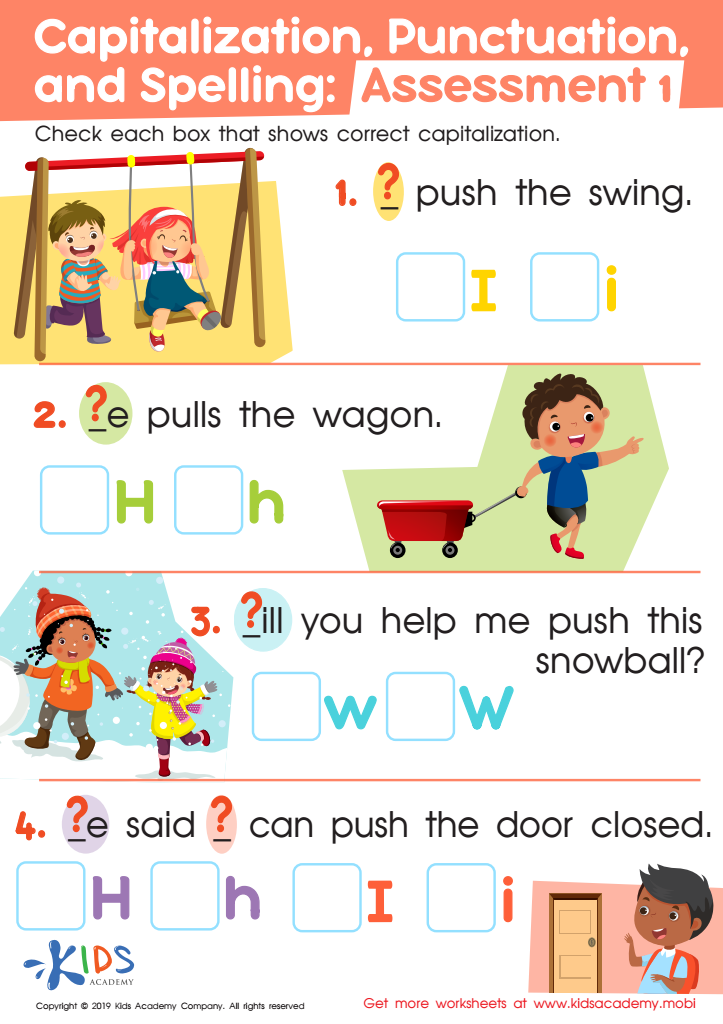

Capitalization. Punctuation. Spelling: Assessment 1 Worksheet
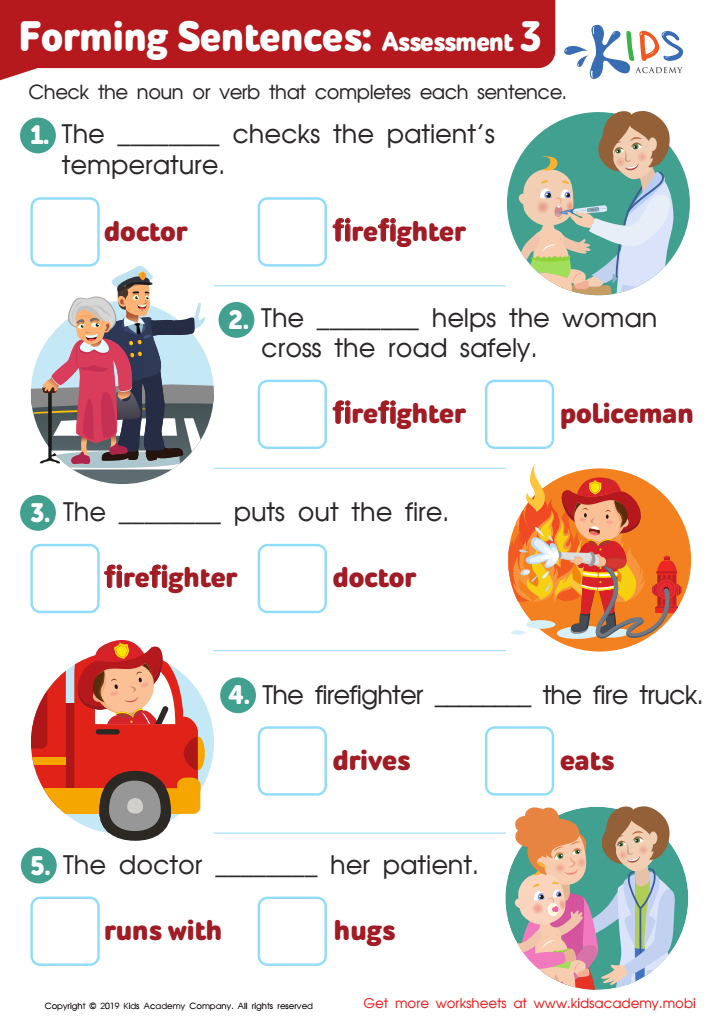

Forming Sentences: Assessment 3 Worksheet
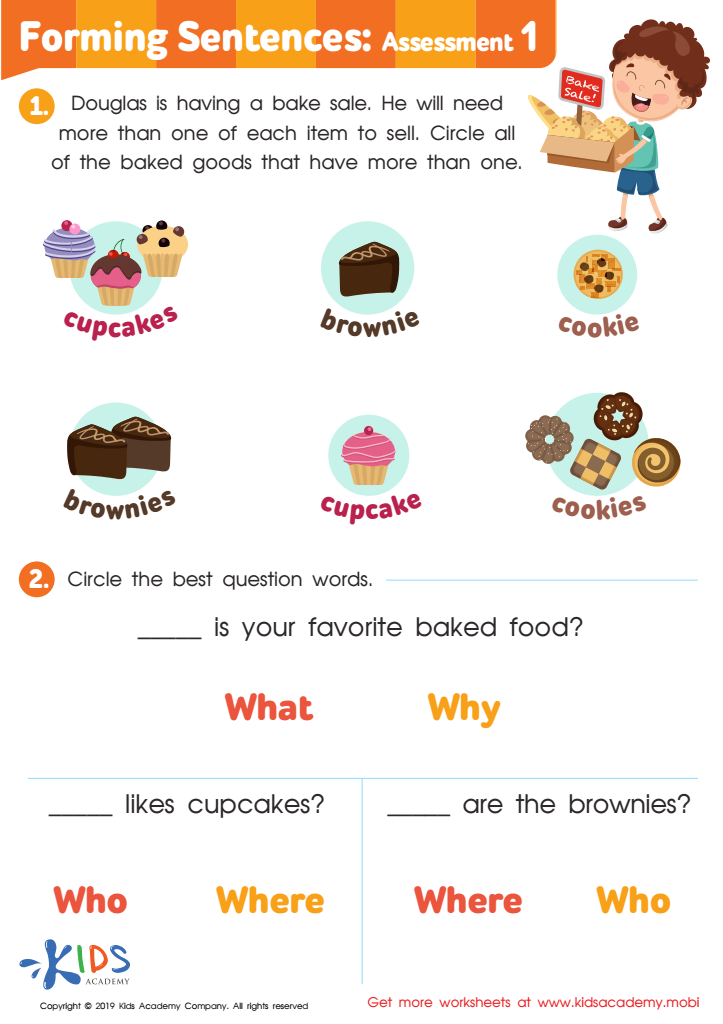

Forming Sentences: Assessment 1 Worksheet
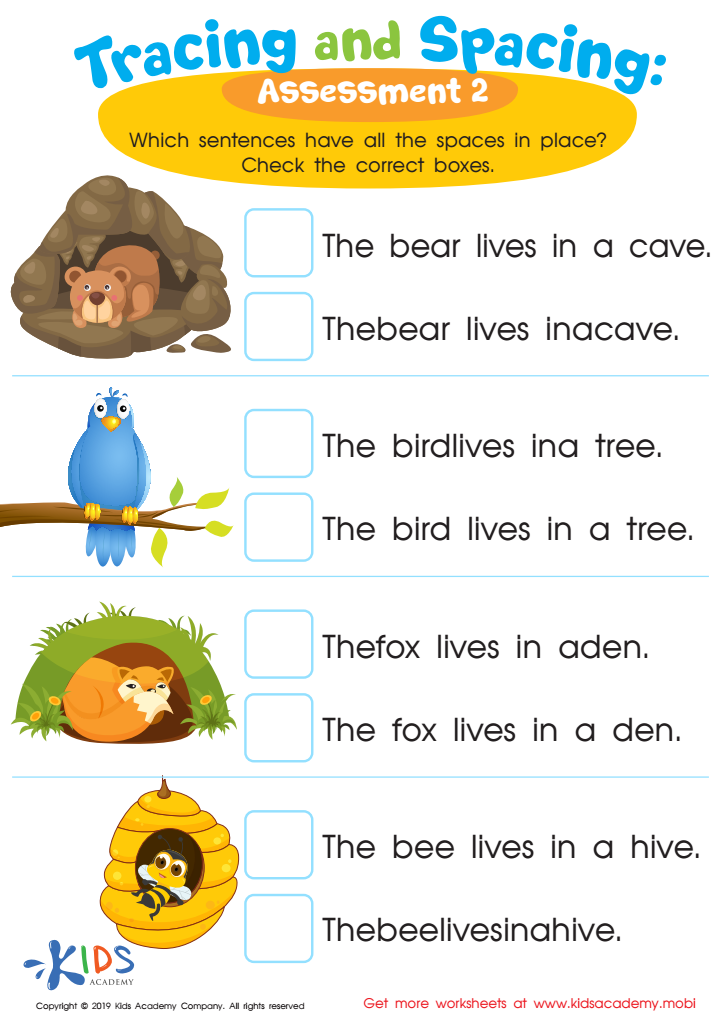

Tracing and Spacing: Assessment 2 Worksheet
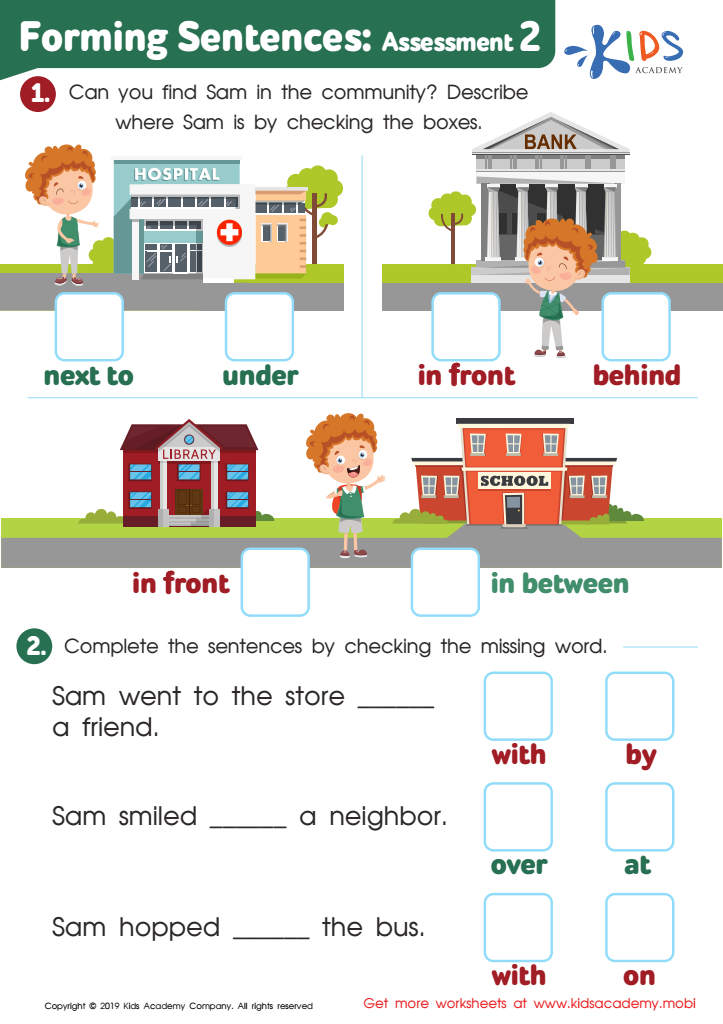

Forming Sentences: Assessment 2 Worksheet
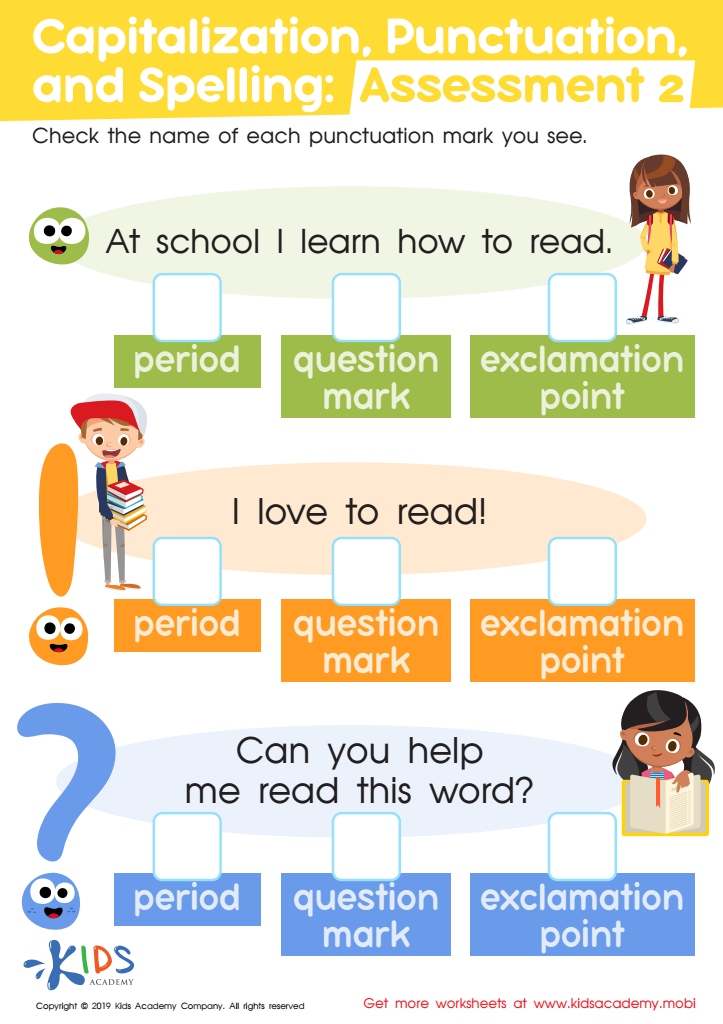

Capitalization. Punctuation. Spelling: Assessment 2 Worksheet
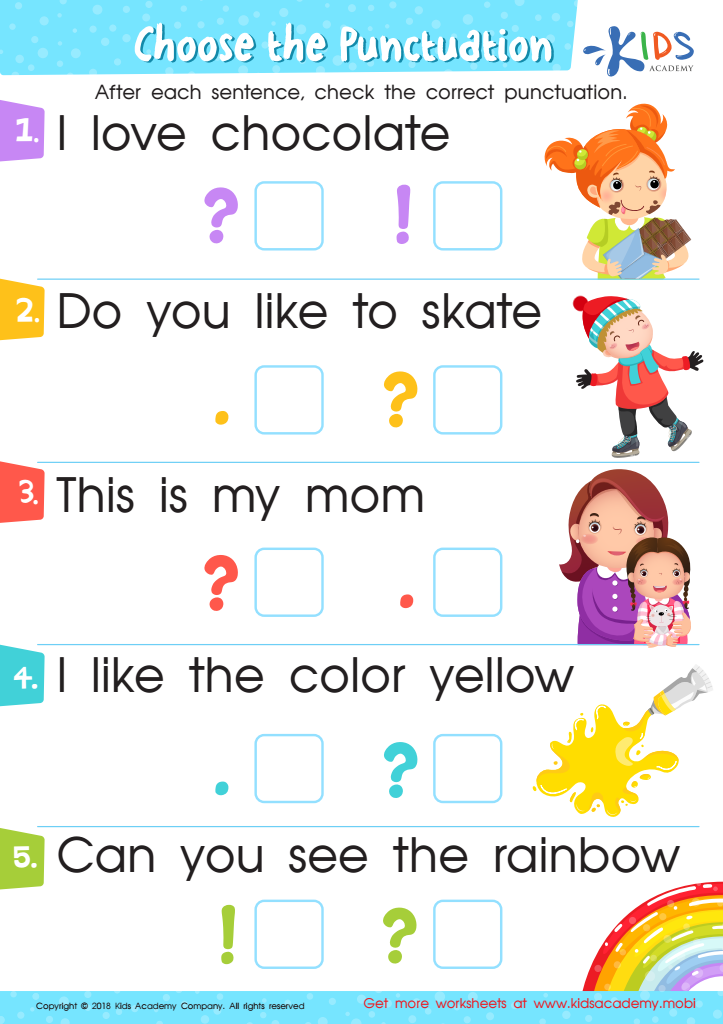

Choose the Punctuation: Assessment Worksheet
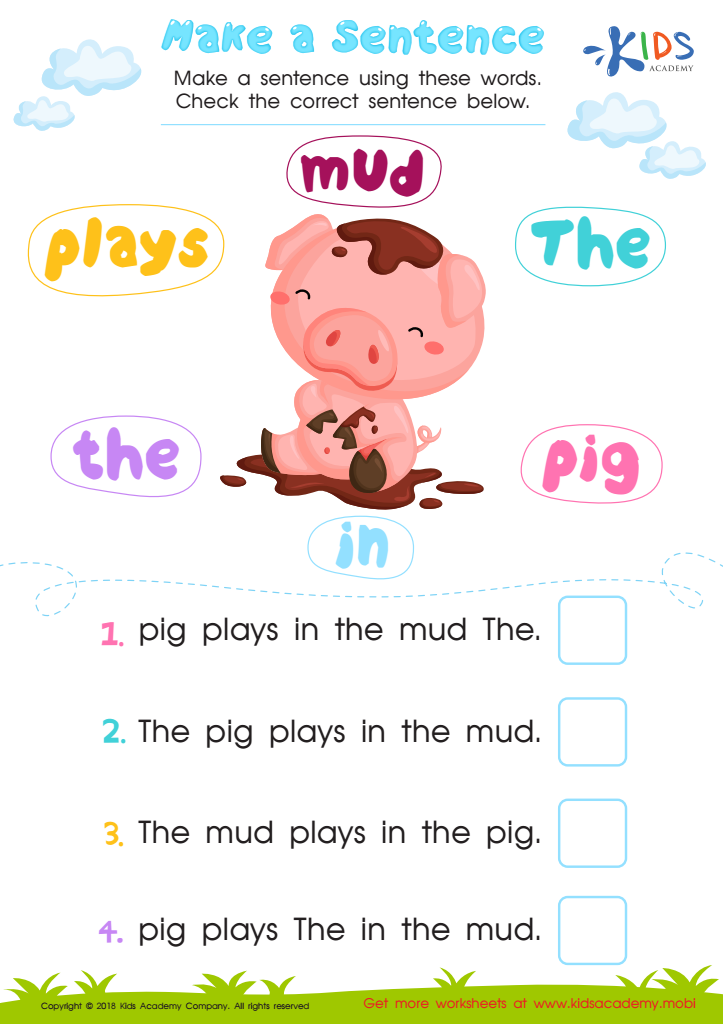

Assessment: Make a Sentence Worksheet
Writing activities for children aged 3-8 are crucial for early childhood development, and both parents and teachers should take an active interest in these activities for several reasons. First, writing enhances literacy skills, which are foundational for academic success. Engaging children in writing activities builds their vocabulary, improves spelling, and nurtures their overall language development.
Additionally, writing fosters critical thinking and creativity. By encouraging kids to create stories, they learn to express their ideas and emotions, which enhances both cognitive and emotional growth. This practice not only develops their imagination but also equips them with the skills to analyze and organize their thoughts coherently.
Moreover, writing activities can also promote fine motor skills, as children practice holding pencils or crayons and forming letters. This aspect is especially vital for younger children who are still developing their muscle coordination.
Finally, guided writing activities often include answers that help reinforce learning, allowing parents and teachers to assess a child’s understanding and progress. This collaboration ensures meaningful and effective feedback. Overall, writing activities should be a priority for both caregivers and educators, as they play an essential role in a child's holistic development.

 Assign to My Students
Assign to My Students
















